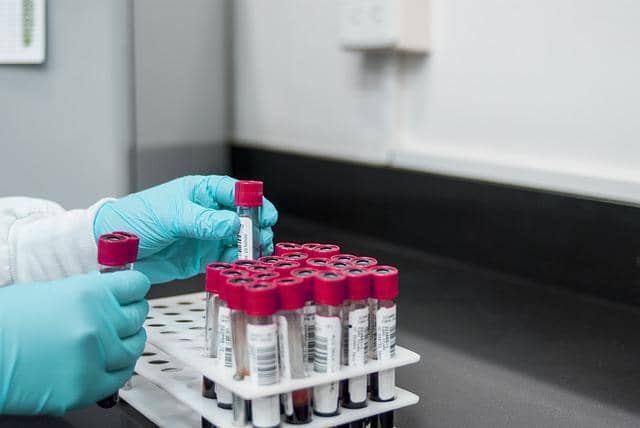What is Usually the First Sign Of HIV?
It is estimated that almost 100,000 people are living with HIV in England, with 4,400 of those not aware that they have the infection. This is because many of the early symptoms go unnoticed, and are often confused with the common cold.
In this article, our sexual health experts want to share how you can spot HIV early on, and explain how the symptoms change as the infection develops. But first, what is usually the first sign of HIV?
The first signs of HIV are similar to that of the common cold, usually appearing 2-6 weeks after the initial infection. Early signs of HIV include:
- Fever
- Headache
- Sore lymph nodes
- Aches and pains
- Nausea
- Unusual rashes
- Fatigue
- Mouth ulcers or an oral yeast infection
Read on to find out more about the signs of HIV in men and women, how long symptoms can take to appear, and how long you need to wait before you get tested.
What is Usually the First Sign Of HIV?
Both men and women experience similar HIV symptoms during the acute or primary infection. The following symptoms usually occur 2-6 weeks after infection:
- Fever
- Headache
- Sore lymph nodes
- Aches and pains
- Nausea
- Night sweats
- Unusual rashes
- Sore throat
- Yeast infection in the mouth
- Fatigue
- Mouth ulcers
These symptoms are referred to as a seroconversion illness, which is a sign that your body is reacting to the presence of HIV. As HIV develops, the early symptoms usually subside and you will enter the next stage, clinical latency (also referred to as a chronic HIV infection). During this stage, some people don’t present any symptoms, and some people will stay in this stage for up to 10 years.
Read one of the articles on our website to find out more about STDs with no symptoms.
What Are the Early Symptoms Of HIV in Men?
Symptoms change for men during the later stages of the infection as the immune system weakens. However, it is important to note that not everyone will experience the same symptoms. Symptoms could include:
- Ulcers on the penis
- General pain around the penis or testicles
- Erectile dysfunction
- Proctitis (inflammation of the rectum)
- Prostatitis (swelling of the prostate)
- Pain during ejaculation
- Pain whilst urinating
- Reduced facial or body hair
What Are the Early Symptoms Of HIV in Women?
As HIV weakens your immune system over time, women may experience some of the following symptoms, although this will differ from woman to woman:
- Changes in your period
- Abdominal pain
- Pelvic inflammatory disease
- Unusual thick white discharge
- Pain during sex
- Pain whilst urinating
- Increased number of yeast infections

The early symptoms of HIV usually appear between 2 and 6 weeks after the infection has been transmitted. Both men and women usually experience flu-like symptoms for around 2 weeks.
After this stage, some people may not experience any other symptoms for up to 10 years, as it can take some time for the HIV infection to weaken the immune system. Some people, however, start experiencing signs of chronic infection straight after the acute infection has passed. The severity of chronic HIV can vary depending on how advanced the HIV infection is.
Can HIV Symptoms Appear in 3 Days?
Although uncommon, the early symptoms of HIV can present themselves just 3 days after the initial infection. The flu-like symptoms will usually last around 1-2 weeks before subsiding. If you’d like to find out more about how long STDs take to show, read one of our recent articles: How long after sex do STI symptoms appear?
Discreet HIV Testing at Your Sexual Health
If you’re looking for more information about HIV, read our comprehensive online guide: HIV – everything you need to know.
If you’re experiencing possible symptoms, you should get tested as soon as possible. For discreet yet comprehensive HIV testing, choose Your Sexual Health. We have a network of over 100 clinics located up and down the UK, and we also offer a quick postal test service if you can’t get to a clinic.
To get started, visit our STI Tests page. For tailored advice and assistance, don’t hesitate to get in touch with a member of our team.
Can You Have HIV Without Knowing?
Yes, you can have HIV without knowing. Many people confuse the initial symptoms of the infection (fever, night sweats, aches, etc) with the common cold. These symptoms usually pass after 1-2 weeks, and then the infection may not present any other symptoms for up to 10 years. This is why it is important to get a comprehensive STD checkup every few months – you can never be too careful.
Is Phlegm a Sign Of HIV?
The early HIV infection often shows itself with flu-like symptoms like a cough, shortness of breath, or a fever. These symptoms can cause you to cough up phlegm which may be yellow or green in colour.
Is Ringworm a Sign Of HIV?
No, ringworm is not a sign of an HIV infection. However, having HIV present within your body can make you more susceptible to diseases and infections like ringworm due to having a weakened immune system.
Is Weight Gain a Sign Of HIV?
No, HIV does not directly cause weight gain. With that said, antiretroviral treatment (also known as ART) may cause you to gain weight around your midsection due to its side effects. Weight gain when taking ART is more common in women than it is in men.
Can HIV Be Confused With Another STD?
As HIV usually presents flu-like symptoms in the early stages unlike other common STDs, it is rarely confused with other infections. With that being said, if you use an inaccurate STD test, you risk a false-positive test. Find out more in one of our helpful articles: Can HIV be misdiagnosed for another STD?



